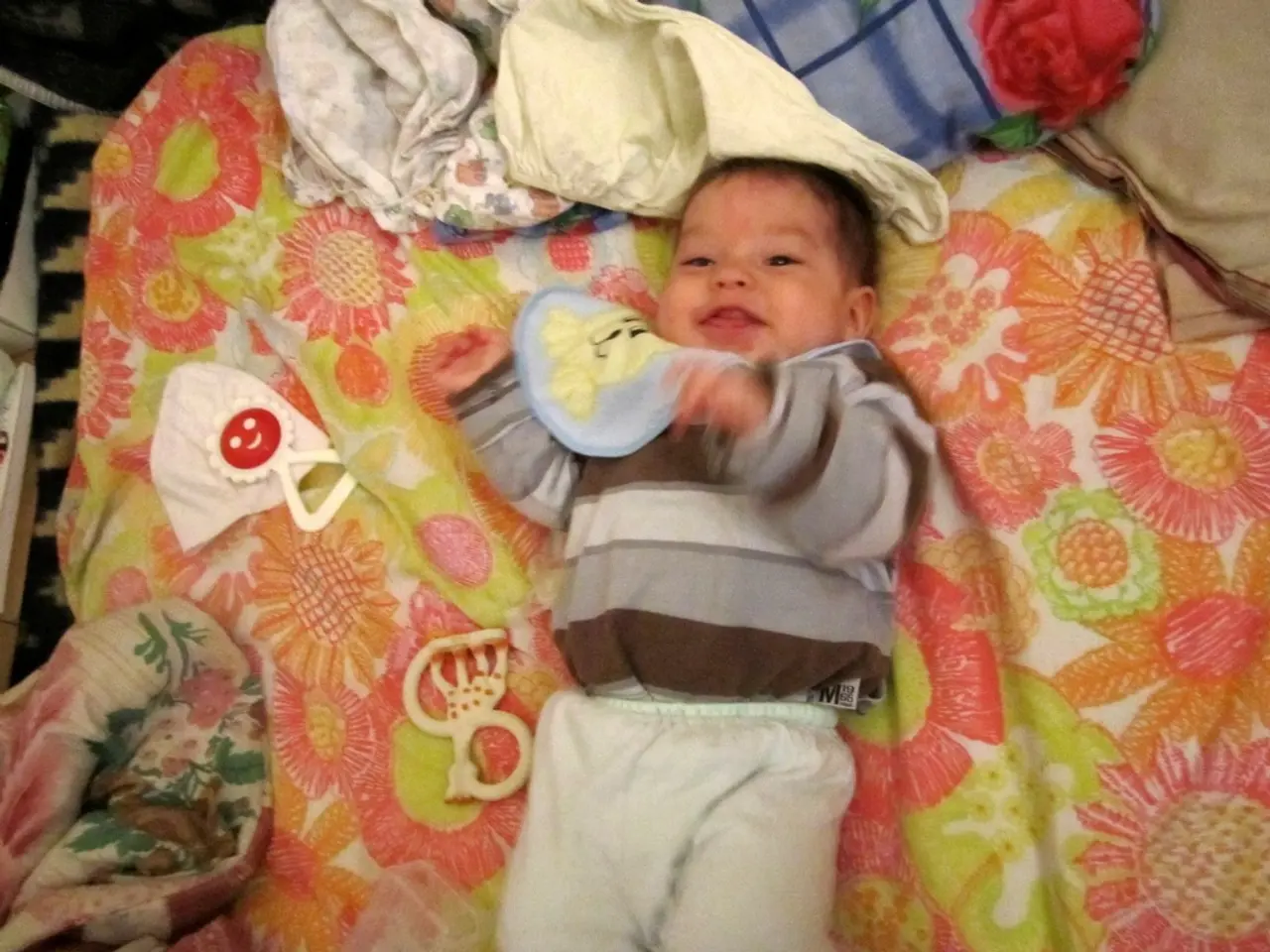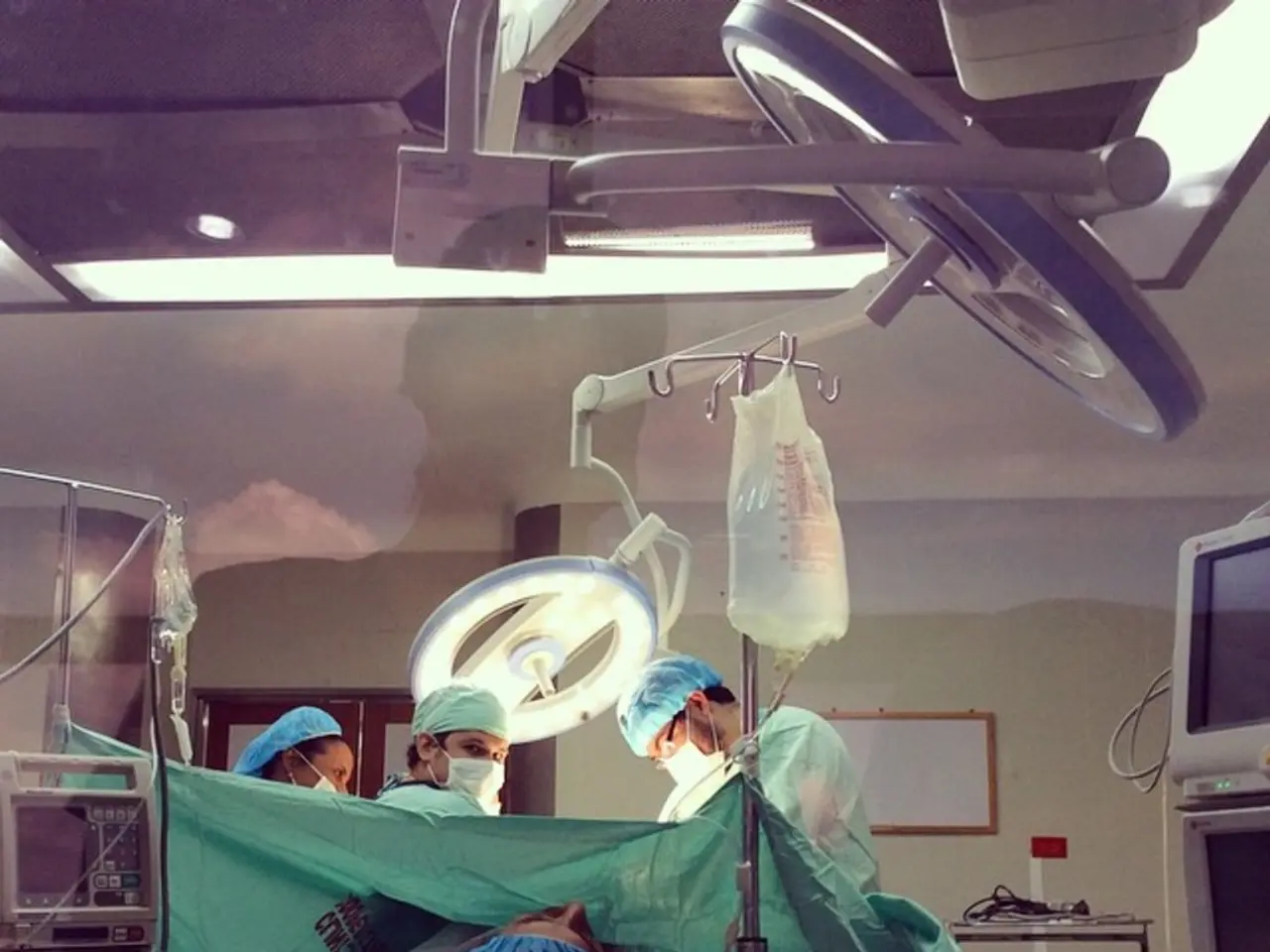Comprehensive Handbook for Basic Newborn Care in Nigeria
In Nigeria, ensuring the well-being and survival of newborns is of paramount importance due to high infant mortality rates. This article aims to offer practical guidance tailored to the Nigerian context, addressing the essential aspects of newborn care.
Preparing for newborn care before the baby's arrival is crucial. Essential items needed include clean clothes and blankets suitable for the newborn's size and weather, hygiene supplies such as mild soap, clean water, and soft cloths for bathing and wiping. Feeding essentials, like breastfeeding support equipment or safe formula feeding supplies, are also necessary. Basic health supplies, such as a thermometer, clean nail clippers, and clean towels, are essential as well. Immunization materials and records as per national guidelines should also be prepared [1].
Maintaining proper hygiene is crucial to prevent infections and promote newborn health. Always wash hands thoroughly with soap and water before handling the baby, feeding, or cleaning the baby's environment. Clean the baby gently with warm water and soft cloths; avoid harsh soaps. Gently cleanse the mother's breasts with clean water and soft cloth before nursing or expressing milk to reduce infection risk [2][4]. Maintain clean bedding and clothing for the newborn, and ensure the living environment supports good sanitation and hygiene practices to prevent infections, aligning with national water, sanitation, and hygiene (WASH) strategies [1].
Recognizing signs of illness requiring immediate medical attention is vital. Difficulty breathing or persistent fast breathing, poor feeding or refusal to feed, excessive crying or unusual lethargy (reduced movement or responsiveness), high or low body temperature (fever or hypothermia), yellowing of the skin or eyes (jaundice), unusual spots, rashes, or discharge from eyes, nose, or umbilical stump, persistent vomiting or diarrhea, and inconsolable crying are signs that necessitate prompt medical attention to reduce newborn mortality risks [1].
Proper breastfeeding technique and positioning are essential for both the mother and the baby. Exclusive breastfeeding, meaning the baby receives only breast milk without any additional liquids or solids, is recommended for the first six months of life. Encouraging early bonding and breastfeeding is pivotal for newborns' optimal development in Nigeria [5].
Common health concerns that newborns in Nigeria may experience include jaundice, respiratory problems, infections, low birth weight, congenital anomalies, neonatal malaria, and malnutrition. Proper nutrition plays a significant role in ensuring an adequate supply of breast milk [6].
This article also provides information on creating a safe environment, recognising developmental milestones, and understanding the unique needs of newborns. Tips to establish a sleep routine for the baby include creating a consistent bedtime routine, making the sleeping environment calm and comfortable, and learning the baby's sleep cues.
These practices align with Nigeria's Child Survival Action Plan 2025-2029, which highlights essential newborn care combined with strong health system support and community engagement to improve newborn outcomes nationwide [1]. Initiatives like enhanced midwifery care and education also strengthen these outcomes by equipping healthcare workers to provide quality care at birth and beyond [3].
In summary, preparing clean, safe supplies, maintaining strict hygiene, and vigilant monitoring for illness signs are crucial for newborn care in Nigeria, supported by ongoing national programmes to reduce child morbidity and mortality.
- Before the baby's arrival, it's essential to prepare clean clothes, blankets, hygiene supplies, feeding essentials, basic health supplies, immunization materials, and records to support newborn care.
- Proper hygiene is vital to prevent infections and promote newborn health; always wash hands thoroughly before handling the baby, feeding, or cleaning the baby's environment.
- Maintaining clean bedding and clothing for the newborn, as well as ensuring a living environment that supports good sanitation and hygiene practices, can prevent infections and align with national WASH strategies.
- Recognizing signs of illness is crucial to determine when medical attention is required, such as difficulty breathing, poor feeding, excessive crying, high or low body temperature, yellowing of the skin or eyes, unusual spots, rashes, discharge, persistent vomiting or diarrhea, and inconsolable crying.
- Proper breastfeeding technique and positioning are essential for the mother and baby, with exclusive breastfeeding for the first six months recommended to promote newborns' optimal development in Nigeria.
- Proper nutrition is significant in ensuring an adequate supply of breast milk, addressing common health concerns faced by newborns in Nigeria, such as jaundice, respiratory problems, infections, low birth weight, congenital anomalies, neonatal malaria, and malnutrition.
- This article offers information on creating a safe environment, recognizing developmental milestones, and understanding the unique needs of newborns, including tips to establish a sleep routine for the baby.
- Strengthening newborn outcomes can be achieved through ongoing national programs, enhanced midwifery care, and education, which equip healthcare workers to provide quality care at birth and beyond.




